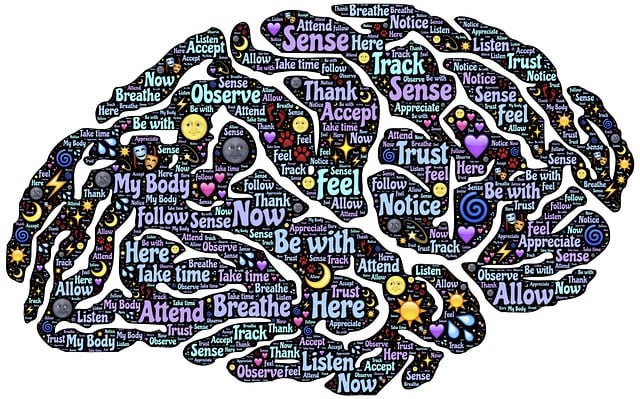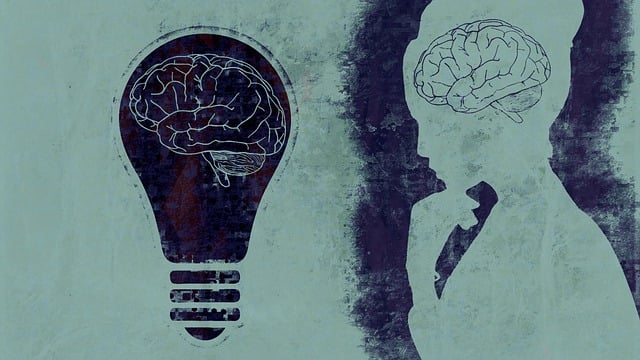Diagnosing mental illness in French-speaking communities like Castle Rock faces challenges due to linguistic barriers and cultural differences, leading to potential misdiagnosis or underreporting. To address this, targeted Mental Health Education Programs focused on cultural sensitivity and language accessibility are crucial. These programs empower French speakers with self-esteem improvement and stress management techniques, encouraging them to seek help and ensuring accurate, tailored assessments. Castle Rock French Speaking Therapy combines evidence-based practices with cultural sensitivity for precise diagnoses and personalized treatments, improving patient outcomes in diverse populations.
Mental illness diagnosis accuracy is a critical aspect of patient care, yet challenges persist, especially within French-speaking communities. This article delves into the complexities of these diagnoses, highlighting cultural sensitivity as a key factor in improving accuracy. We explore innovative approaches like Castle Rock French Speaking Therapy, which offers unique techniques for better assessments. Additionally, evidence-based strategies are presented to empower mental health professionals in making accurate evaluations, ensuring effective treatment for all.
- Understanding the Challenges of Mental Illness Diagnosis in French-Speaking Communities
- The Role of Cultural Sensitivity in Improving Diagnostic Accuracy
- Castle Rock French Speaking Therapy: A Unique Approach to Enhancing Diagnostic Techniques
- Evidence-Based Strategies for Accurate Mental Health Assessments
Understanding the Challenges of Mental Illness Diagnosis in French-Speaking Communities

Diagnosing mental illness in French-speaking communities presents unique challenges due to cultural nuances and linguistic barriers. In many cases, mental health services are primarily offered in English, leaving French-speaking individuals at a disadvantage, especially in regions like Castle Rock where bilingual therapy services are not always readily available. This language gap can significantly impact the accuracy of diagnoses, as communication plays a vital role in understanding an individual’s symptoms and experiences.
Cultural differences also influence how mental health issues manifest and are perceived within these communities. Stigma surrounding mental illness may be more pronounced, leading to underreporting or misdiagnosis. To address these challenges, targeted Mental Health Education Programs Design that incorporate cultural sensitivity and language accessibility are essential. Promoting self-esteem improvement and stress management techniques can empower French-speaking individuals to seek help and ensure they receive accurate assessments tailored to their unique needs.
The Role of Cultural Sensitivity in Improving Diagnostic Accuracy

In an increasingly diverse society, cultural sensitivity is a cornerstone in enhancing mental health diagnosis accuracy. Mental health professionals must recognize that cultural background significantly influences how individuals experience and express distress, shaping their presentation of symptoms. For instance, Castle Rock French-speaking communities may exhibit unique manifestations of anxiety or depression due to language barriers, familial dynamics, and cultural coping mechanisms. By integrating self-awareness exercises that promote understanding of these nuances, therapists can improve diagnostic precision.
Promoting self-esteem improvement and burnout prevention strategies among healthcare providers is also vital. Culturally sensitive practices demand immense emotional labor from mental health professionals, emphasizing the need for robust self-care routines. Healthcare providers equipped with effective burnout prevention strategies are better positioned to maintain objective assessments and deliver accurate diagnoses, ultimately benefiting their clients’ treatment outcomes, especially within diverse populations like Castle Rock French-speaking communities.
Castle Rock French Speaking Therapy: A Unique Approach to Enhancing Diagnostic Techniques

In the realm of mental health diagnosis, Castle Rock French Speaking Therapy emerges as a novel and innovative approach designed to improve accuracy and accessibility for Francophone individuals. This specialized therapy caters to the unique linguistic and cultural needs of French-speaking communities, ensuring that diagnostic techniques are not only precise but also culturally sensitive. By integrating elements of positive thinking and stress management workshops, this therapeutic method goes beyond standard diagnosis to foster burnout prevention and overall well-being.
The Castle Rock French Speaking Therapy model promotes a holistic understanding of mental health by combining evidence-based practices with a deep respect for cultural diversity. Through tailored sessions, therapists create a safe and supportive environment where individuals can openly discuss their experiences without language barriers. This personalized approach not only enhances diagnostic accuracy but also encourages the development of effective coping strategies, empowering clients to manage stress and maintain positive thinking in their daily lives.
Evidence-Based Strategies for Accurate Mental Health Assessments

Mental health professionals increasingly recognize the importance of accurate diagnoses to ensure effective treatment and improved patient outcomes. Evidence-based strategies play a pivotal role in enhancing assessment accuracy, particularly in diverse populations like Castle Rock French-speaking communities. One such strategy is incorporating validated cultural assessment tools tailored to address language barriers and unique cultural nuances. These tools enable therapists to gather comprehensive information, understand patients’ perspectives, and make more precise diagnoses, especially for conditions with significant cultural variations in presentation, such as depression.
Additionally, fostering inner strength development through therapeutic interventions can significantly contribute to accurate assessments. Techniques focusing on building resilience and coping mechanisms aid in identifying underlying mental health issues that may otherwise remain undetected. Depression prevention programs, for instance, can equip individuals with early intervention strategies, while crisis intervention guidance ensures professionals are prepared to handle acute situations effectively. These comprehensive approaches not only enhance diagnosis accuracy but also promote overall mental wellness within diverse communities.
Mental illness diagnosis accuracy is a multifaceted challenge, particularly in diverse communities like French-speaking regions. By addressing cultural sensitivity and implementing innovative approaches such as Castle Rock French Speaking Therapy, significant strides can be made towards more precise assessments. Combining these efforts with evidence-based strategies ensures that individuals receive appropriate care, ultimately improving mental health outcomes for all.














